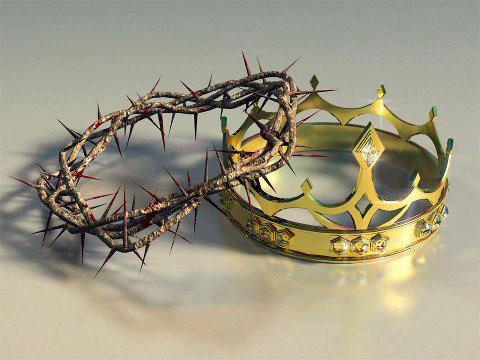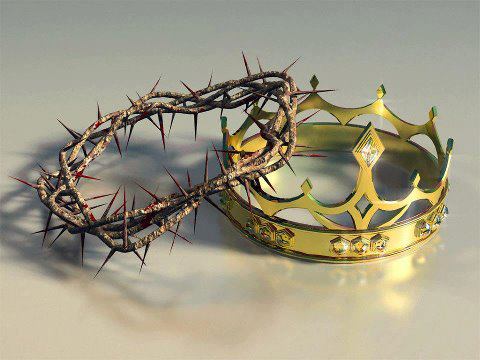Given the amount of misinformation surrounding the new Religious Freedom Restoration Act (RFRA), I think it might be good to speak to the matter of toleration, and surprisingly (for many), it is not necessarily the good that we think. Toleration is often left undefined, and how toleration plays out is not always thought through.
Toleration is in short supply these days, it seems, but one rarely looks at oneself as the intolerant one. This article by Rousas Rushdoony may help:
The bitter hostilities and sometimes savage persecutions for religious reasons of all dissenting elements once marked Christendom and marred its professions of faith. Supposedly, we have now entered into more enlightened times, and toleration is the rule. But, before we congratulate ourselves on being wiser and more advanced, let us remember hostility and savagery have not disappeared. Rather, they have merely been transferred from religion to politics.
The humanism of the Enlightenment, in line with the thinking of Bayle and many others, viewed religious differences as of trifling important. Religion was seen as mere opinion, superstition, and blind belief. To argue or fight over something like religion was hardly becoming to any intelligent man. Toleration, instead of representing moral advance, represented moral indifference. Moreover, strong convictions, as they left Christianity, entered into politics, so that politics became the new religion, and the wars of religion became total political and military wars. The 20th century sees the full-fledged holy political wars, although their first great eruption came with the French Revolution. There has been no moral advance.
Toleration in the modern age was born out of a false premise, namely, that Christian faith is a mere opinion and a matter of indifference. Now men kill and die over matters of politics. The more clearly humanistic and anti-Christian these new men are, the more savagely they kill, torture, and destroy. The fascists and the communists are the clearest example of this, but the democracies are moving in the same direction. Moreover, as the new religion of politics triumphs, it drops all pretense of toleration to persecute Christianity openly. On gaining power, political religions can tolerate no free or independent opinion in any realm. Thus, the so-called progress in religious toleration was no progress at all but simply a shift in the locale of intolerance.
The growth of toleration with respect to Christian doctrine and differences was thus a manifestation of indifferentism both within and without the church. Men began to speak of the many roads to God, and to explore other religions with appreciation. Christianity waned as revelation and was stressed as a means of creative self-expression. “Why not try God?” one printed appeal of recent years read. Indeed, why not? Having found mouth washes good for the breath, and soaps and deodorants good for the body, why not try God for the good of one’s peace of mind? God, from the sovereign lord and creator of all things, was reduced to a human resource.
The dictionary defines toleration as tolerating what is not wholly approved, as the spirit and desire to be tolerant in matters of opinion. Intolerance is defined as bigotry, as an unwillingness to tolerate, bear, or endure contrary beliefs and opinions. Now, if politics is the order of reality and truth for us, we cannot then tolerate a contrary belief, because it is then very clearly a danger and a menace. Hence, the communists cannot tolerate republican capitalists, and true republicans cannot tolerate communists. Politics has then ceased to be a matter of opinion: it has become a matter of reality and of sanity.
The Christian cannot favor either tolerance or intolerance. First of all, both positions reduce Biblical religion to a matter of opinion, a position he must emphatically deny. Second those who profess toleration hold that the truth will be discovered by free inquiry, whereas the Bible is clear that the truth of God is known by revelation from God and is received by the Spirit of God working in man to hear God’s written word. The key on man’s part is thus not free inquiry, however worth while or earnestly pursued, but regeneration. Similarly, those who believe in intolerance assume that repression can change the human scene. But man is not remade by law, nor by repression, but by the regenerating power of God. Neither toleration nor intolerance have anything to do with it.
Paul tells us that, for all the unredeemed, God’s law is a curse: it is a death sentence upon all men (Deut. 27):
10. For as many as are of the works of the law are under the curse: for it is written, Cursed is every one that continueth not in all things which are written in the book of the law to do them.
11. But that no man is justified by the law in the sight of God, it is evident: for, The just shall live by faith.
12. And the law is not of faith: but, The man that doeth them shall live in them.
13. Christ hath redeemed us from the curse of the law, being made a curse for us: for it is written, Cursed is every one that hangeth on a tree:
14. That the blessing of Abraham might come on the Gentiles through Jesus Christ; that we might receive the promise of the Spirit through faith. (Gal. 3:10–14)
For an unregenerate man to attempt to pass before God by law-keeping is impossible: he is under God’s curse, and God’s law accuses him for his lawlessness. For a man to claim that he sees no reason for God to condemn him as he goes his own way, because he neither kills, steals, nor commits adultery, is arrogance and evil. Most men keep within the law on these things out of fear of the state’s police, and in fear of their wives! They serve themselves best, and most easily gratify their will to be god in their own lives, by keeping within the law. Their’s is not morality but cautious sin. No man can justify himself before God, nor make atonement for his sin. Consider this fact: God’s law is life, peace, and strength to the redeemed (Ps. 119). “Great peace have they which love thy law: and nothing shall offend them” (Ps. 119:165). This same law is a curse, not peace nor strength, to the unregenerate.
Now, if God’s law is a curse to the unregenerate, how much more so is humanistic man’s law a curse to him! Man makes his laws in order to save himself by law. He says of politics and law: This is the order of reality and of salvation; we men will remake the world and ourselves by our works of law. What God’s law curses is man’s way. If man seeks to use God’s law, or a Pharisaic version thereof, as a means of salvation, he is accursed. What Paul condemns is precisely the Pharisaic perversions of the law erected into a plan of salvation. If these are condemned, how much more so the openly humanistic versions of law stand condemned. They are, moreover, all the more a curse to man. The new religion of politics and its doctrine of salvation by humanistic law is thus a fearful curse upon mankind.
No man, says Paul, is justified by the law in the sight of God. Rather, the just shall live by faith. The justified thus do not see politics as salvation. Moreover, they recognize the errors in both tolerance and intolerance. These involve a trust in man’s work and way rather than in the promise of the Spirit.
Thus, we cannot stand in terms of the Biblical doctrine of justification and pursue the dream of fallen man, from Cain, through Rome, to the present, of salvation by politics. It is the tempter’s program.
Rousas John Rushdoony, Systematic Theology in Two Volumes, vol. 1 (Vallecito, CA: Ross House Books, 1994), 637–639.


